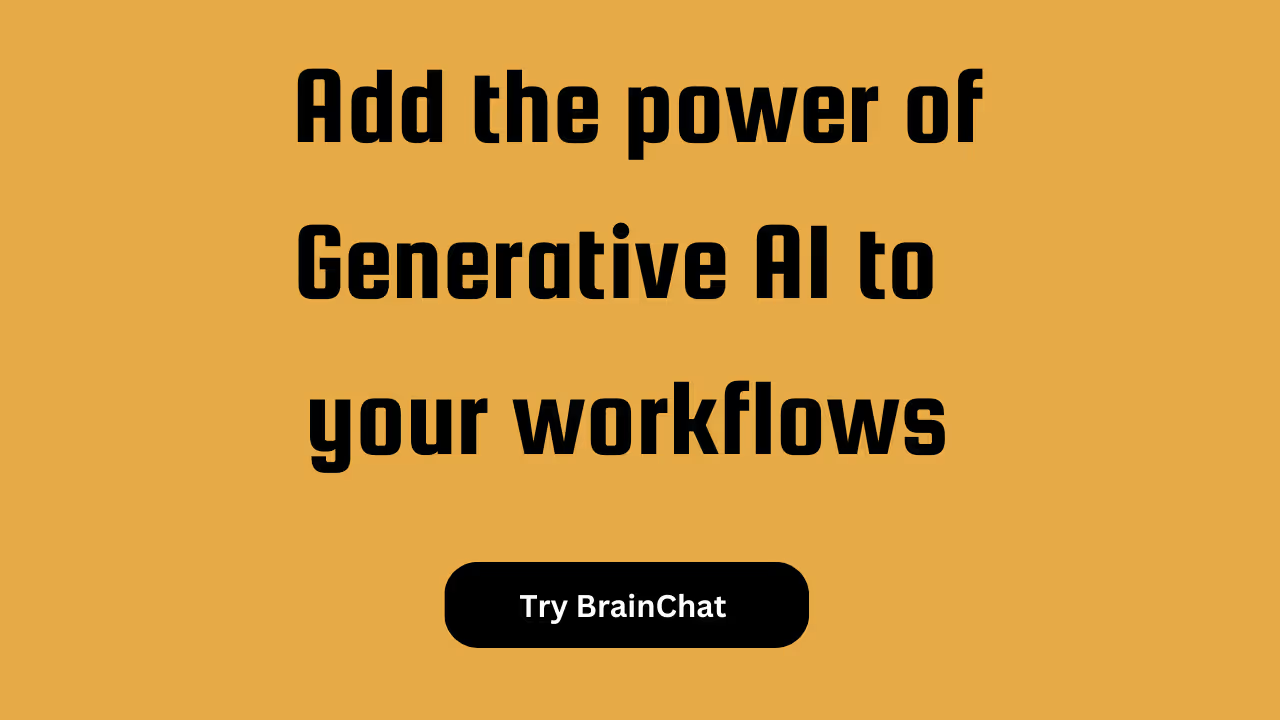
How to use ChatGPT for SEO

How to Optimize Your Content for Search Engines (SEO) using ChatGPT
Search Engine Optimization (SEO) plays a pivotal role for businesses and content creators aiming to enhance their search rankings. AI models like ChatGPT offer a unique advantage in boosting SEO efforts. This guide outlines how to effectively leverage ChatGPT to enhance content, streamline workflows, and increase organic visibility.
ChatGPT, developed by OpenAI, is a versatile AI tool that generates text, assists in research, and provides creative input, all of which can aid SEO optimization. By harnessing ChatGPT, SEO professionals can craft keyword-optimized content, meta tags, and responses that improve a website’s ranking potential.
BrainChat allows you to use ChatGPT (and other LLMs) at work in an organized, secure & collaborative way. Start adopting AI on your company today.

Benefits of Using ChatGPT for SEO
There are several reasons why ChatGPT is a valuable asset for SEO strategies:
Automated Content Creation: ChatGPT can generate SEO-friendly blog posts, product descriptions, and website content.
Keyword Research: It assists in discovering keyword variations and long-tail terms to create comprehensive content.
Meta Tags & Title Tags: Generate keyword-rich meta descriptions and title tags quickly.
Content Ideas: Based on core keywords, ChatGPT suggests fresh angles and ideas to engage your audience.
Keywords are central to SEO, driving the relevance and ranking of your content. For example, optimizing for the keyword "ChatGPT SEO" requires comprehensive research and thoughtful integration into the text.
Optimizing for the Keyword: ChatGPT SEO
1. Keyword Research & Usage
Conduct thorough keyword research using tools like Ahrefs or Google Keyword Planner. Identify related terms such as:
How to use ChatGPT for SEO
ChatGPT in content marketing
Naturally incorporate these terms into your content, ensuring the primary keyword “ChatGPT SEO” is strategically placed in title tags, meta descriptions, and headings.
2. Create High-Quality, Relevant Content
Search engines favor content that addresses user intent. For “ChatGPT SEO,” create an in-depth guide that provides value by answering common user queries:
How to integrate ChatGPT in SEO strategies?
3. Use Structured Data (Schema Markup)
Structured data helps search engines better understand your content. For topics like "ChatGPT SEO," using FAQ or Article schema can help your content appear as rich snippets.
4. Optimize Meta Tags and Descriptions
Ensure that your meta descriptions and title tags are descriptive, compelling, and keyword-optimized. They should entice users while maintaining SEO relevance.
Example:
Title: "ChatGPT SEO: Boost Your Rankings with AI"
Meta Description: "Learn how ChatGPT can elevate your SEO efforts with AI-powered content generation, keyword research, and more."
5. Enhance User Experience (UX)
User experience directly impacts SEO. Ensure your content:
Loads Quickly: Slow sites lead to higher bounce rates.
Is Mobile-Friendly: With mobile usage on the rise, ensure your content is accessible on all devices.
Engages Users: Use interactive elements, images, and well-structured text to keep readers engaged.
6. Internal & External Linking
Linking enhances your site’s authority and helps users navigate your content. Link to internal pages for added relevance and to authoritative external sources for credibility.
7. Emphasize E-A-T (Expertise, Authority, Trustworthiness)
Google prioritizes content from reputable sources. Establish expertise by citing reliable sources, providing accurate information, and featuring strong author bios and About pages.
Using ChatGPT for Specific SEO Tasks
Beyond content generation, ChatGPT can handle several SEO tasks:
1. Generate Blog Ideas
ChatGPT suggests unique, keyword-optimized blog topics that align with trending industry content.
2. Product Descriptions
For e-commerce sites, ChatGPT can write SEO-friendly product descriptions that attract both users and search engines.
3. Content Optimization
Refresh outdated content with updated keywords, aligning it with current SEO trends and user search intent.
Challenges of Using ChatGPT for SEO
While ChatGPT is a powerful tool, it comes with challenges:
Limited Human Creativity: AI-generated content may lack a personal touch.
Keyword Overuse: Be cautious of keyword stuffing, which can harm rankings.
Inaccuracies: AI might provide outdated or incorrect information, so always review the content.
By incorporating ChatGPT SEO into your strategy, you can streamline content creation, refine keyword targeting, and enhance organic visibility. While ChatGPT can offer valuable assistance, human oversight remains crucial to ensure the quality, relevance, and creativity of your content. By following these best practices and continually refining your approach, you can maximize your SEO potential.
Turbocharge your team with BrainChat AI
Teams using BrainChat report a 40% boost in task completion speed. Imagine what your team could achieve.
%20(1).png)



